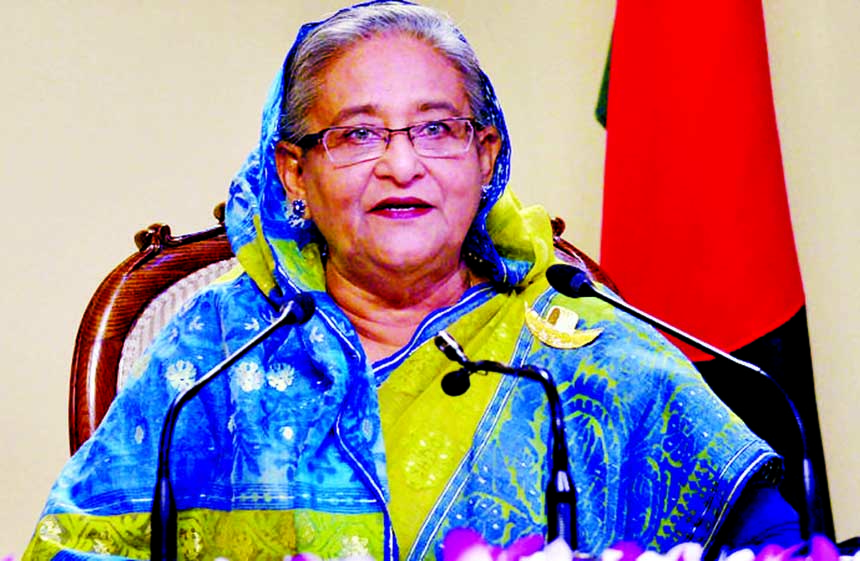
BSS, Davos, Switzerland :
Prime Minister Sheikh Hasina has sought concerted global supports to five key areas to minimize the risk of lives and livelihoods of farmers, fishers, artisans and women particularly calling upon the businesses to play their role to negate the climate change impacts.
While speaking at the plenary session of the World Economic Forum titled “Leading the Fight against Climate Change” at Congress Hall on Wednesday evening, Sheikh Hasina said as Bangladesh moves to implement the Paris Agreement, there are areas global community, including business, can step in.
First, she said, the lives and livelihoods of farmers, fishers, artisans, women are increasingly at risk and so “they need urgent support . . . we need greater focus on agriculture and food security”. Sheikh Hasina also urged the global community and business to make “smart agriculture” beneficial for small and marginal farmers as well as giving them knowledge on sustainable cropping and farm management across entire value chain.
She put emphasis on developing quality, resilient, water-intensive seeds adaptive to local conditions – for key cereals and non-cereal crops and getting sustainable agri inputs or, solutions accessible to small and marginal famers in the low-income countries. Second, the premier said, global business and research hold solutions that can save lives, crops, agri resources. “We need innovative ‘not-for-profit’ models or partnerships to roll the solutions to meet our needs,” she said.
Third, the prime minister said access to renewable and clean energy, energy-efficient technologies, devices, implements – are critical – for farming, manufacturing, urban services. “We need support and innovate to go beyond the existing global energy market modalities,” she said.
Fourth, she said: “We’re moving towards ‘green growth’ path. But, we need assured climate finance – as the world pledged. Half of that amount has to go to climate-vulnerable countries.”
The Bangladesh premier identified “technology sharing” as the fifth area to require the global approach saying transfer – adaptive development – sharing of technology are so critical as the world “can no longer sit pretty on the excuse of intellectual protection”.
“Now UN Technology Bank for LDCs is there for all to help the LDCs on technology, (but) what we ask is access to life-saving technologies in agriculture, health, etc. that can bring in huge difference,” she added.
Noting that Bangladesh is a “tale of climate ground zero” it is about our existence, Sheikh Hasina said: “Bangladesh contributes least to global greenhouse gas emission, we pay dearly. Millions are forced to move, silently.”
She said Bangladesh ratified the Paris Agreement, with the hope that global community will share responsibility for shared prosperity. “Paris Agreement must deliver towards the low-income, climate vulnerable countries,” she said.
The prime minister said in 2009, out of own resources, Bangladesh established a 400 million dollar Climate Change Trust Fund. “In 2012, we committed that Bangladesh would not exceed the average per capita emission of the developing world,” she said.
Sheikh Hasina said that Bangladesh is shifting to a low-carbon development path. “We are transforming our manufacturing ‘green’. … we are focusing on renewable energy; and installed around 4.5 million Solar Home Systems in Bangladesh.”
She said that over 15 million people now access electricity from these solar units. “By 2018, Bangladesh will emerge as the largest solar nation globally,” she said.

